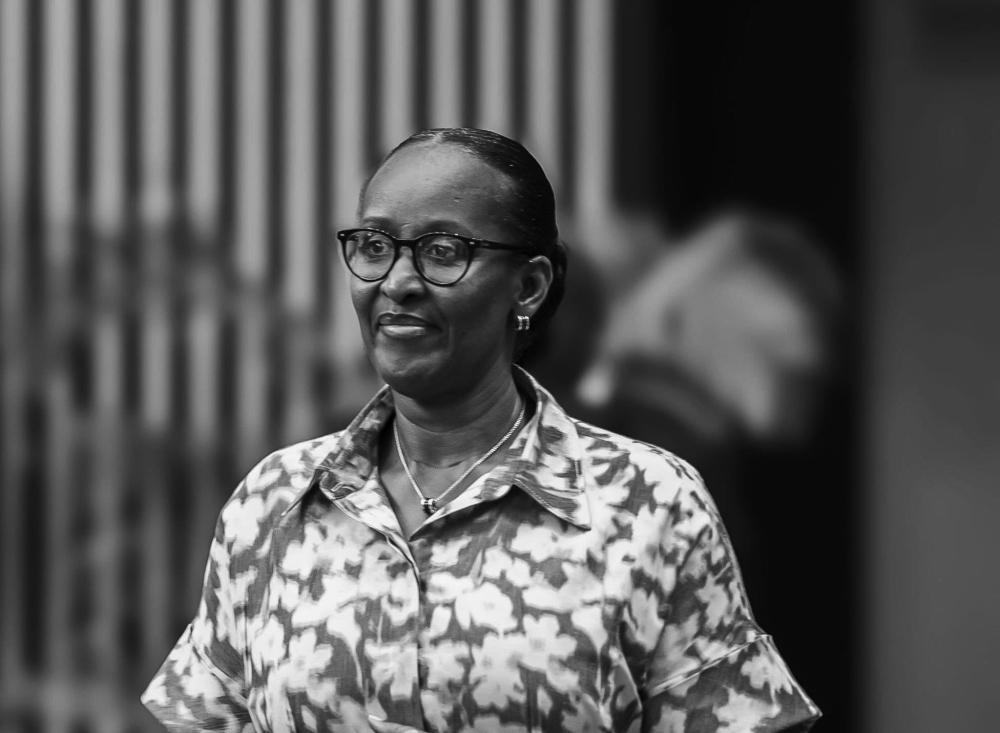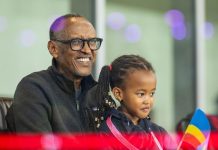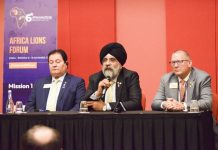Africa-Press – Rwanda. To this day, it still humbles me to have been blessed with a safe country where we can all grow and build; a people united in weaving a legacy we proudly bear. And to me, the greatest blessing of all will always be one’s family. I recently wrote about couples, but it feels only fair to me to leave no loop unclosed, and also address the wonderful adventure they will likely journey through, together: parenting.
How precious is the child. The infant that clutches your finger in their little fist, almost as an instinctive desire to cling to life. To cling to the people that have love and protection to offer them. Soon you will find that you too must cling back, until and after they reach adulthood.
It will be hard.
Still, you will love your children more than life itself.
At the heart of it all, parents are guided less by perfection than by instinct. The instinct to prepare. Sometimes, the gripping fear that harm may come to their child claws at the stomach. It may express itself in over-protection, in reproaches, in high expectations.
Yet, parenting is rarely about control for its own sake.
If children could only glimpse into this state of mind or the window of our hearts…the sleepless nights, the silent prayers or the sacrifices hidden in plain sight, perhaps they would see, not only rules and crippling pressure, but the imperfect and whole-hearted deep love that sustains it all.
Our Own Share of Blame.
You see, I write about family often, because I believe that the wellness of the family unit is the end goal in nation-building. I write to reflect and engage; not because I have all the answers.
No human is without fault or flaw. Nor is parenting a casting call!
We neither choose our children, nor forcefully mold them into what we wish them to be. Let us make peace with that…for they do not choose us either.
Let’s discuss: Is There a Perfect Balance In Parenting?
In this world, where technology has offered children realms unknown to us, universes where success is measured in terms foreign to us, the questions are plenty.
I am an optimist by choice. Still, I worry.
How is the next generation of fulfilled, patriotic children raised?
We rarely ask these questions anymore. Instead, I worry that we busy ourselves with gadgets, rankings, and performance charts. We glorify test scores and technical skills while forgetting that the health of a nation rests, just as much on thought, philosophy, and the art of raising fulfilled human beings.
We love to say it takes a village to raise a child. But what sort of village are we today? Is it one that shelters children, or one that casts them away when they do not fit the script? Children who are unheard, mislabeled, or ridiculed will not stay quiet forever. Some will rebel in silence, others in fire.
When the village refuses to embrace its children, as the saying goes, those children may set the village aflame, just to feel its warmth.
Our ideals and values are exacting in their standards. Our Rwandan culture is fiercely proud. Our perception of why, where to, and how quickly we must advance, can seem intransigent…often seeing adults that have their own share of traumas, striving to function as productive members of this society.
But what if, when it came to raising our children, we looked at things slightly differently? What if we led with understanding, lifting them when they stumble, without necessarily condoning damaging behaviour?
Once more, always, throughout, a balance must be found; a balance must be struck.
The Damaging Instinct to Label
For all our desire to raise exceptional human beings, the tragedy is how quickly we resort to categories. New words have come to systematically pathologise, to fit them into boxes that eventually imprison them.
Introvert. Difficult. Average. Exceptional. On a spectrum…as though human beings can be reduced to acronyms and terms defined by people of different realities and cultures. The “less conversant” child – depending on age – is treated as mute or defective, the middle child as invisible, the adventurous as a rebel, the hyperactive as dangerous.
Let’s admit it: labels soothe adults, especially parents and teachers, but they inhibit and wound children. We forget each child carries their own agency. We forget that they are also receptive and responsive to their parents’ own behaviours, moods and attitudes.
Parenting itself is not static.
The first child meets inexperienced parents. The youngest encounters tired, sometimes wiser, versions of the same people.
Yet we tend to judge children as if they grew up under identical conditions. It is dishonest. It may in fact be lazy.
The point is not to romanticise childhood but to treat it as its own stage of life. The philosopher Jean-Jacques Rousseau warned us that children see the world differently, and that forcing adult logic on them only produces distortion (“L’enfant a des manières de voir, de penser, de sentir, qui lui sont propres.”). If we listened, we would stop mistaking silence for deficiency, or small rebellions for fundamental character flaws.
We must stop pretending that brilliance comes in only one shape. The student who cannot sit still may become a dynamic, innovative entrepreneur. The “problem child” may grow into the artist who holds a mirror to society. Yet, schools and families collude in stamping out differences, convinced they are doing society a favour.
In truth, they are creating outliers – lonely, radicalised, sometimes violent – not because the children were intrinsically broken, but rather, because society failed to make space for them.
So What Is To Be Done?
Parents must discipline without humiliation and guide without crushing the spirit. Society must act as the middle ground between family and nation, a space where tolerance and understanding can flourish. And above all, we must refuse the tyranny of labels.
We must allow for the fluid process of discovery, chances for children to experiment and shed skin. And, for the love of these children, let all parents abstain from pathologising them.
Children must only be compared with their own best selves. Rather than to be made to anticipate judgement, they must learn resilience, through encouragement, motivation, and faith in their potential and good intentions.
How do we equip them to face a harsh world head-on, and not freeze at the prospect of failure?
We must teach them how to think independently and cultivate courage, not avoidance.
This is how we forge leaders, this is how we build resilient, happy citizens.
A Word of Loving Advice
A fulfilled child is not one who has been shielded from hardship, but one who has been loved and equipped with empathy, ambition, imagination, and the confidence that mistakes are not final verdicts but lessons that refine our character and sharpen our wisdom.
For you, the child that knows deep down, that it is the parent’s love that nourishes, the parent’s love that protects, but also the parent’s love that demands success, sometimes awkwardly….embrace your part!
For if parents could do it ALL, to guarantee your wellness, they certainly would. But personal responsibility is, trust me, an unavoidable part of life.
Whether you choose to see it as a burden that you fail to carry to fruition, or noble faith from the heavens that you are capable of leading a principled, successful life, is ultimately yours alone.
To you, dear parent: allow me to borrow from our Imbuto Philosophy that “a seed well planted, watered, nurtured and given all the necessary support successfully grows into a healthy plant; one that reaches high and stands tall.”
If we aspire to a generation capable of carrying the weight of a difficult world while still daring to reimagine it, then our task is simple yet profound: nurture resilience, not anxiety; curiosity, not conformity; humanity, not performance. In doing so, we do not just raise children. We safeguard the future of our country.
As always, I write out of love.
To you and your families, happy Patriot’s Day!
Signed, JK.
The writer is the First Lady of Rwanda
For More News And Analysis About Rwanda Follow Africa-Press






